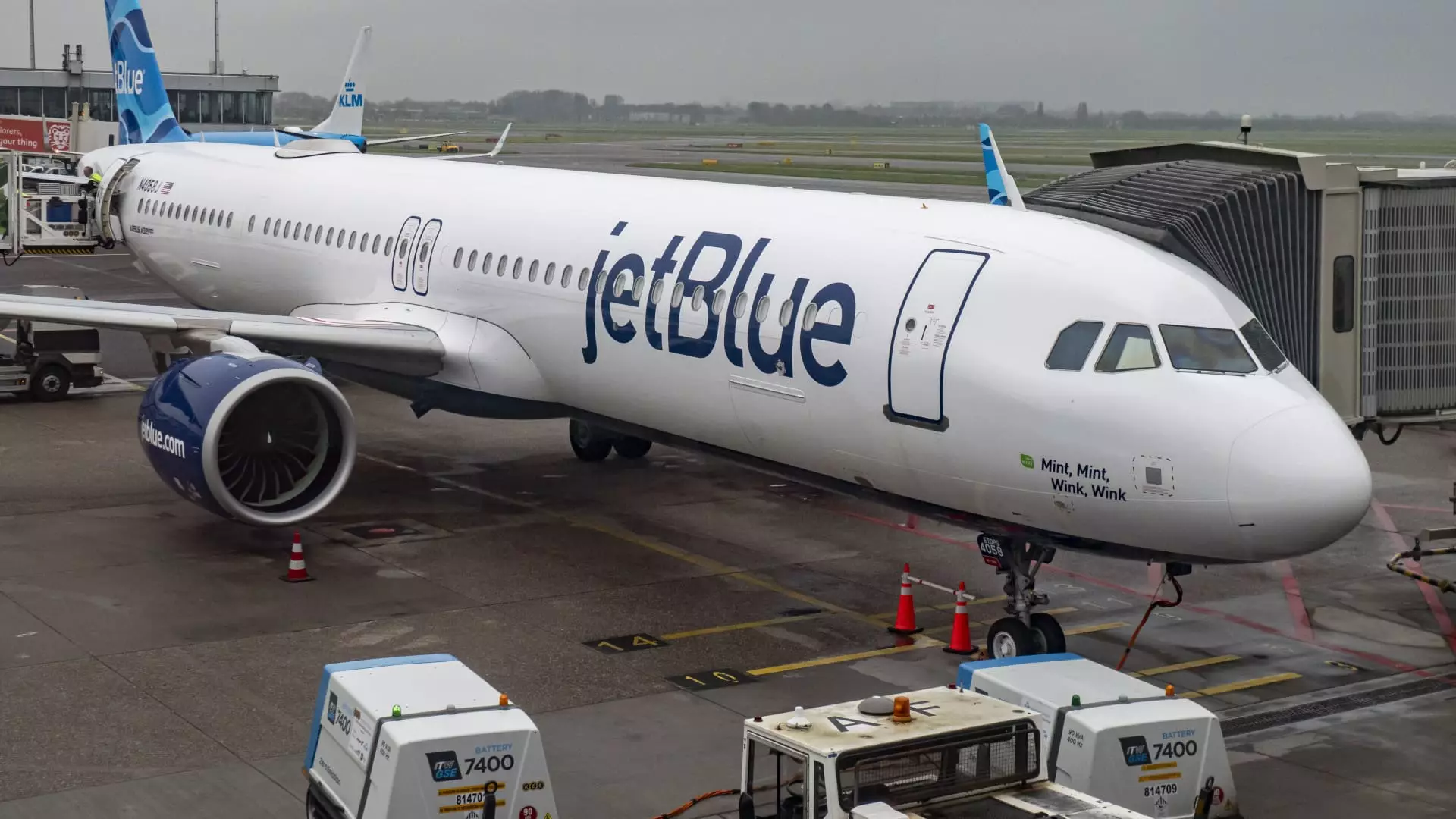In a significant move aimed at improving its financial performance, JetBlue Airways has announced a series of route cancellations and operational adjustments. This decision marks an ongoing effort by the airline to realign its offerings in response to emerging market realities and to enhance its profitability. By eliminating flights that fail to generate viable returns, JetBlue is taking a targeted approach to streamline operations amid a highly competitive environment.
The airline’s latest announcement reveals a critical strategy where certain routes are being cut entirely, including services between Fort Lauderdale and Jacksonville, as well as multiple flights from New York’s John F. Kennedy International Airport to Texas cities like Austin and Houston, among others. Notably, JetBlue will also discontinue its service to San Jose, California, reflecting a clear shift away from markets that are no longer supportive of the airline’s business model. The adjustments are largely influenced by JetBlue’s inability to maintain profitability in Miami, due in part to fierce competition from established carriers such as American and Delta.
The discontinuation of some flights has also prompted JetBlue to examine staffing implications, particularly in Miami. The airline aims to mitigate the impact on employees by exploring options for crew members to transfer to other locations. This proactive labor strategy could prevent potential unrest and demonstrate the company’s commitment to its workforce during a challenging transition.
In tandem with cutting unprofitable routes, JetBlue is repositioning its aircraft equipped with the acclaimed Mint business class seats towards more lucrative markets. This tactical repurposing demonstrates the airline’s understanding of consumer demand and its intent to capitalize on high-value customers. Furthermore, JetBlue plans to announce new service options to Europe in the upcoming week, indicating a potential expansion in a strategically valuable segment.
However, the decision to eliminate certain transatlantic connections, such as the second JFK-Paris flight and seasonal service to London’s Gatwick Airport, raises questions about the airline’s broader international strategy. Despite the cutbacks, the company remains committed to maintaining its presence in Europe, suggesting that any new routes could align with potential rebounds in post-pandemic travel.
JetBlue’s recent actions come on the heels of better-than-expected revenue and booking reports for the latter part of the year, which resulted in a notable surge in stock prices. Nevertheless, CEO Joanna Geraghty and her team face considerable challenges ahead, particularly concerning the grounding of Pratt & Whitney engines and shifts in customer travel patterns.
In a statement, JetBlue emphasized its dedication to refining its network, which will not only support operational efficiency but also provides customers affected by these changes the option of alternative flights or refunds. This customer-centric approach, combined with a focus on high-demand markets, positions JetBlue to navigate an evolving aviation landscape more effectively while fostering loyalty amidst uncertainty.
By thoughtfully cutting routes and reallocating resources, JetBlue Airways aims to secure its financial future while adapting to a changing travel environment. As airlines continue to face post-pandemic realities, JetBlue’s strategy may serve as a blueprint for others grappling with similar challenges.


Leave a Reply